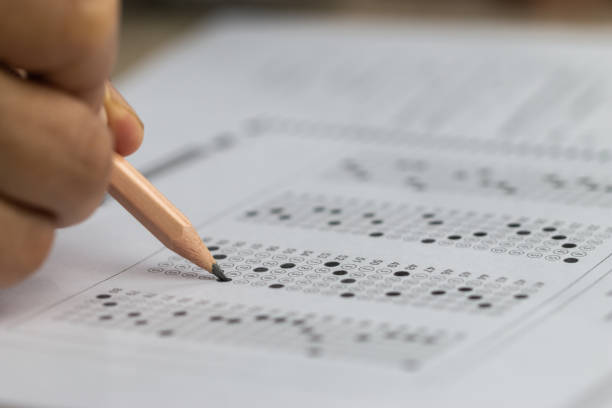How to Overcome Exam Anxiety: Practical Tips for Success
How to Overcome Exam Anxiety: Practical Tips for SuccessCoping with Test Anxiety
Exam anxiety is a common challenge faced by many students. The pressure to perform well combined with the fear of failure can lead to high levels of stress and anxiety. However, it is important to remember that exam anxiety is a normal response to a challenging situation. The good news is that there are practical tips and techniques that can help you overcome exam anxiety and achieve success. In this article, we will explore some effective strategies to cope with test anxiety.

Reducing Test Anxiety
1. Start Early: One of the main causes of test anxiety is poor time management. Procrastination can amplify feelings of stress and make it difficult to retain information. To reduce test anxiety, start studying early and create a study schedule to ensure you cover all the necessary material.
2. Break it Down: Rather than overwhelming yourself with the entire syllabus, break your study sessions into smaller, manageable chunks. Focus on one topic at a time and set clear goals for each study session. This approach will help you stay organized and make the learning process more manageable.
3. Practice Deep Breathing: Deep breathing exercises are a simple yet effective way to reduce test anxiety. When you feel overwhelmed, take a few minutes to practice deep breathing. Inhale slowly through your nose, hold your breath for a few seconds, and then exhale slowly through your mouth. This technique can help calm your mind and relax your body.
4. Stay Active: Regular physical activity can significantly reduce anxiety levels. Make sure to incorporate exercise into your daily routine, whether it's going for a run, practicing yoga, or simply taking a walk. Physical activity releases endorphins, which are known as “feel-good” hormones and can help alleviate stress and anxiety.
5. Get Enough Sleep: Lack of sleep can negatively impact your cognitive abilities and increase feelings of anxiety. Make it a priority to get enough sleep in the days leading up to your exams. Aim for 7-9 hours of quality sleep each night to ensure your mind and body are well-rested.
6. Seek Support: Don't hesitate to reach out for support when you're feeling overwhelmed. Talk to friends, family, or teachers about your exam anxiety. Sometimes expressing your fears and concerns can help alleviate them. If your anxiety is interfering significantly with your daily life, consider seeking professional help from a counselor or therapist.
Effective Study Techniques
1. Practice Active Learning: Passive reading and highlighting may not be the most effective study techniques. Instead, engage in active learning strategies such as summarizing information in your own words, teaching concepts to a study partner, or creating flashcards. By actively engaging with the material, you are more likely to retain and understand the information.
2. Use Visual Aids: Visual aids can enhance your understanding and memory of complex information. Create diagrams, charts, or mind maps to visualize relationships between different concepts. Experiment with different visual tools to find what works best for you.
3. Practice Retrieval: Don't rely solely on re-reading your notes or textbooks. Practice retrieving information from memory by taking practice tests or quizzing yourself. This active recall strengthens your memory and improves your ability to recall information during an exam.
4. Create a Distraction-Free Environment: When studying, find a quiet and well-lit space where you can focus without distractions. Turn off your phone or put it on silent mode to minimize interruptions. It's important to create an environment that promotes concentration and productivity.
5. Breaks and Rewards: Taking regular breaks during your study sessions can actually improve your focus and retention. Strive for a balance between study time and short breaks. You can also reward yourself after completing a specific task or achieving a milestone. Celebrating small victories along the way can boost your motivation and reduce anxiety.
6. Utilize Online Resources: Take advantage of online resources, such as educational websites, online tutorials, and instructional videos. These resources can provide additional explanations and examples that help reinforce your understanding of the material.

Exam Anxiety Relief
1. Positive Self-Talk: Replace negative thoughts and self-doubt with positive affirmations. Remind yourself of your capabilities and strengths. Instead of thinking, “I'll never succeed,” reframe it as, “I am well-prepared, and I can do this!”
2. Visualize Success: Use visualization techniques to imagine yourself performing well on the exam. Picture yourself feeling calm, confident, and in control. Visualization can help reduce anxiety and improve your mindset leading up to the exam.
3. Practice Relaxation Techniques: Explore different relaxation techniques, such as meditation, mindfulness, or listening to calming music. Find what works best for you and practice these techniques regularly, especially during moments of heightened anxiety.
4. Focus on the Process, Not Just the Outcome: Instead of fixating solely on the end result, focus on the learning process and the progress you're making. Embrace the journey of acquiring knowledge and skills, rather than stressing about the final grade.
5. Stay Positive: Surround yourself with positive influences and supportive individuals who believe in your abilities. Avoid comparing yourself to others and remind yourself that everyone has their own unique journey. Stay true to yourself and your goals.
By implementing these practical tips and techniques, you can effectively overcome exam anxiety and perform at your best. Remember, it's normal to feel some level of anxiety before an exam, but with the right strategies and mindset, you can manage and minimize its impact on your performance. Good luck!




